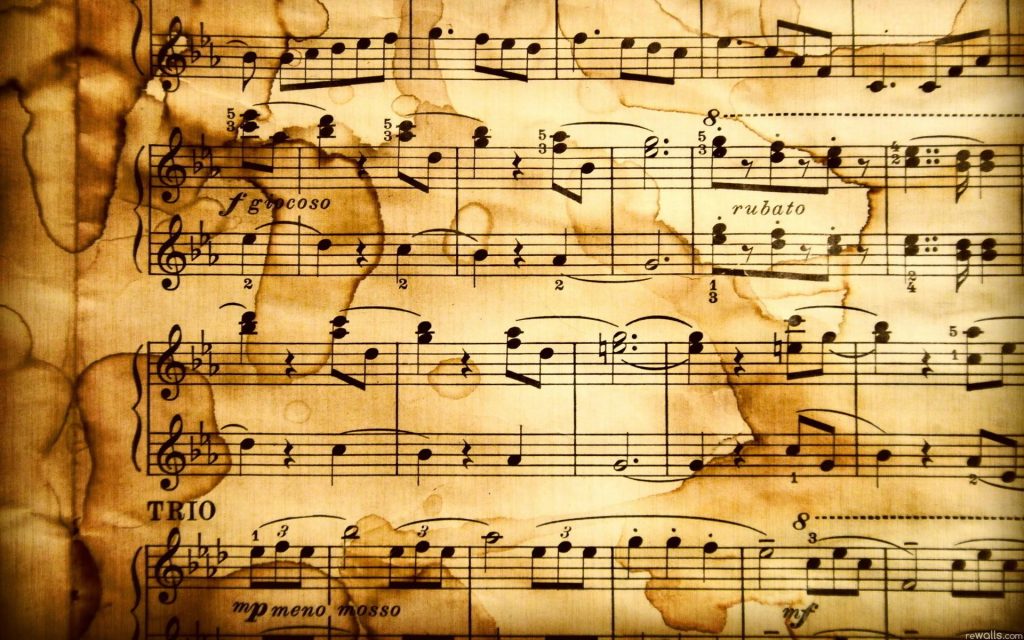By: Gabrielle Brim
Origins
Classical music’s early form dates back to the Medieval and Renaissance Period in Europe, where plainsong emerged. Plainsong lacked a strict meter and was sung without musical background. This was eventually replaced with polyphonic music, which combines multiple melodic lines together. Following the Medieval Period, the Renaissance Period involved more instrumentation that was used to accompany dancing. Afterwards, the Baroque, Classical, and Romantic Period emerged respectively. The Baroque period helped to form classical music through its sonata form. In addition, the Classical Period introduced the piano and symphony. Mozart, Hadyn, and Beethoven were notable composers during this time. After the Classical Period, the Romantic Period, incorporated an extension to the melodic line and elements that appealed to the emotions.
This style of music did not just remain in Europe but also traveled to the United States. Before the Civil War, some African American composers were taught music from European musicians. Others learned from local musicians, or were self-taught. These African American musicians composed short ballads, anthems, overtures, social dances, etc. that had European American style.
After emancipation, opportunities increased for African American musicians to develop professionally in colleges, universities, and music schools. This increase in education allowed African American musicians to write operas, symphonies, chamber music, etc. In addition, most of these educated African American musicians became popular and helped to uplift the culture of African Americans. They also taught other Blacks music at historically black institutions.
Towards the end of the nineteenth century, a movement called music nationalism spread to the United States and influenced Black composers to discover the use of African and African American musical style within Western classical music. In addition, the declaration of the Emancipation Proclamation in 1863, brought new hopes to African Americans for equality within society and the performing arts.
Characteristics
In the composition, “Battle of Manassas,” by Thomas Green Wiggins Bethune (a.k.a. Blind Tom), the piano is the solo instrument used. In the beginning of the composition, the melody is light with a heavy and harsh bass sound accompanying it. In addition, the tempo is moderately slow. The composition then transitions, in which the bass is no longer heard, the melody is played clearly with higher-registered notes, and the tempo is slowed down slightly. The tempo begins to speed up again providing a cheerful sound. The bass appears again with a harsh sound that contrasted with the melody, allowing the melody to stick out. This continues throughout the rest of the composition.
Important Performers & Commodification
Thomas Green Wiggins Bethune, also known as Blind Tom, was a concert pianist and composer, who had the ability to memorize and play music after hearing it once. He learned music as a slave from his master’s wife and daughters. He was hired as a slave-musician for approximately $15,000. He gave concerts during the Civil War to raise funds. Blind Tom gave concerts in the United States, Canada, and Great Britain, earning a good amount of money for his owner. Some other notable performers include Todd Duncan, Leon Bates, and William Warfield.
[embedyt] https://www.youtube.com/watch?v=T6vLl-55szE[/embedyt]
Influence on Future Genres
Classical music helped to influence modern genres due to its short and recognizable melody that is repeated often throughout a piece. In addition, the emotional and dramatic elements used in classical music helped to influence the subgenre, heavy metal. In fact, heavy metal guitarists incorporated parts of Bach’s and Vivaldi’s compositions in their solos.
Commentary
Classical music is one of my favorite genres. The music is very calming and serves as an escape from the busy world around us. In addition, playing classical music is even more relaxing and engaging . When I played the flute and trombone for concert band and wind ensemble, I could feel the notes come off the page with so much passion being placed into the music from myself and other players. I enjoyed every moment of playing marches, ballads, overtures, and symphonies.


